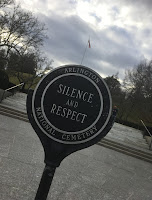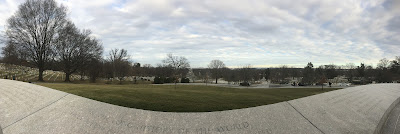Gone are the days that the attic stored thousands of photos and letters and memories. These are all online now in email accounts, on Facebook, Instagram and elsewhere. People now can live beyond death online as a digital persona. However, much that was appropriate while a person was alive may be less so after their death. These photos, videos, tweets, blogs and emails are digital or online assets that may have significant value for family and friends of the deceased. In addition, most social media platforms, with the presentation of accurate documentation, will de-activate the deceased’s account.
For example, on Facebook, you can permanently remove a loved one’s account after their death through a form called ‘Special Request for Deceased Person's Account’, completely removing their profile and all associated content from Facebook, so no one can view it. The next-of-kin or executor of the deceased's estate needs to send a copy of a death certificate along with the deceased’s account details, and the account will then be investigated and removed by Facebook. OR if you are prepared for your own demise and wish to delete your profile from Facebook upon your death, simply do the following:
• Go to Settings in your Facebook profile page
• From the left menu, click General
• Click Manage Account
• Click Request account deletion and follow the on-screen instructions”
Alternatively, you can alert Facebook to the fact that someone has passed away via a ‘Memorialization Request’ and their profile will be frozen to act as a memorial page where their friends and family can leave wishes, thoughts and memories. When pages are memorialized, they are removed from sidebars, timelines, friend suggestions and searches and the privacy of the account tightens, with only friends from the ‘pre-death’ account able to view the page and “Remembering” is added to their name on their profile page. You can also nominate a Legacy Contact which is a person chosen to look after your account after it has become a memorial page. The legacy contact can respond to friend requests, change the profile and cover photo, as well as request removal or the account. They canNOT log into your actual account, read your messages, or change or remove posts, photos or other things you have shared in the past. More info here
For example, on Facebook, you can permanently remove a loved one’s account after their death through a form called ‘Special Request for Deceased Person's Account’, completely removing their profile and all associated content from Facebook, so no one can view it. The next-of-kin or executor of the deceased's estate needs to send a copy of a death certificate along with the deceased’s account details, and the account will then be investigated and removed by Facebook. OR if you are prepared for your own demise and wish to delete your profile from Facebook upon your death, simply do the following:
• Go to Settings in your Facebook profile page
• From the left menu, click General
• Click Manage Account
• Click Request account deletion and follow the on-screen instructions”
Alternatively, you can alert Facebook to the fact that someone has passed away via a ‘Memorialization Request’ and their profile will be frozen to act as a memorial page where their friends and family can leave wishes, thoughts and memories. When pages are memorialized, they are removed from sidebars, timelines, friend suggestions and searches and the privacy of the account tightens, with only friends from the ‘pre-death’ account able to view the page and “Remembering” is added to their name on their profile page. You can also nominate a Legacy Contact which is a person chosen to look after your account after it has become a memorial page. The legacy contact can respond to friend requests, change the profile and cover photo, as well as request removal or the account. They canNOT log into your actual account, read your messages, or change or remove posts, photos or other things you have shared in the past. More info here







